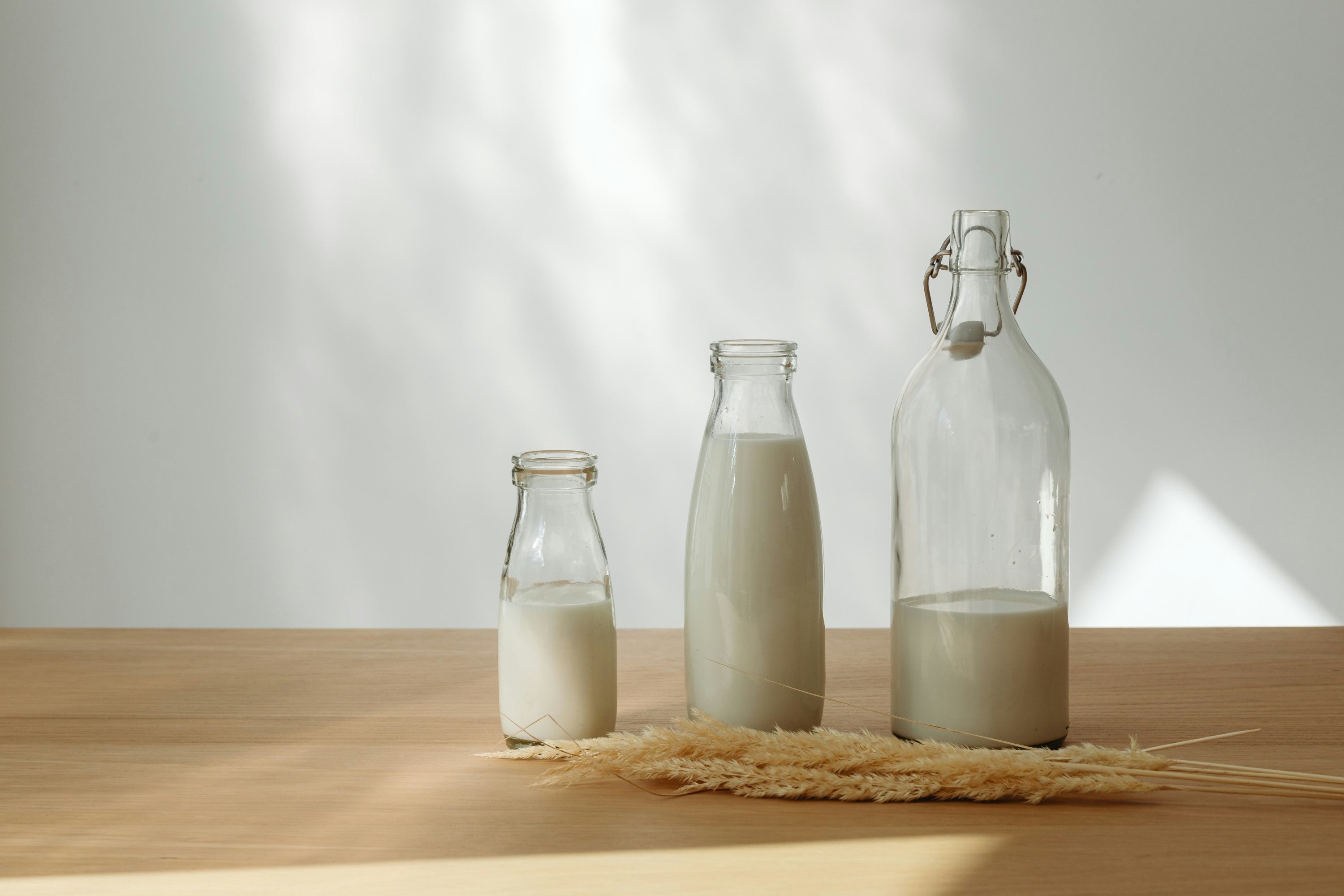Jump to Section
Table of Contents
- What Is Caffeine Intolerance?
- Symptoms of Caffeine Intolerance and Sensitivity
- Causes and Triggers of Caffeine Intolerance and Sensitivity
- Diagnosis and Testing for Caffeine Intolerance
- Caffeine Intolerance Test
- Managing Caffeine Intolerance and Sensitivity
- Caffeine Content in Common Foods and Beverages
- Impact of Caffeine on Mental Health
- Caffeine Withdrawal and Dependence
- Conclusion
- FAQs
Caffeine Intolerance
Written by:
 Riya Lakhani-Kanji, MSc, ANutr. Last Reviewed 1st January 2025.
Riya Lakhani-Kanji, MSc, ANutr. Last Reviewed 1st January 2025.
Do you love your morning coffee, but find yourself grappling with jitters or anxiety afterward? You’re certainly not alone. Caffeine is a natural stimulant found in coffee, tea (including green and black), and cacao. It offers a quick pick-me-up, yet it can also come with some unwelcome side effects, particularly for those with caffeine intolerance or sensitivity.
Caffeine intolerance occurs when your body has a hard time breaking down caffeine, leading to symptoms like anxiety, restlessness, or a racing heart. Caffeine sensitivity, on the other hand, implies that even small amounts of caffeine can trigger these negative reactions. It’s also important to know that caffeine intolerance and sensitivity are not the same as a caffeine allergy. An allergy can trigger much more serious and potentially life-threatening reactions, such as difficulty breathing.

Given that over 30% of coffee drinkers in the UK consume multiple cups daily, understanding how our bodies respond to caffeine is important. If you've noticed that caffeine isn't agreeing with you, or you're looking to balance your love of coffee with your overall health, this guide is for you. Read on as we explore the nuances of caffeine intolerance, sensitivity, and even potential allergies. By recognising the symptoms and understanding the triggers, you'll be better equipped to manage your caffeine intake effectively.
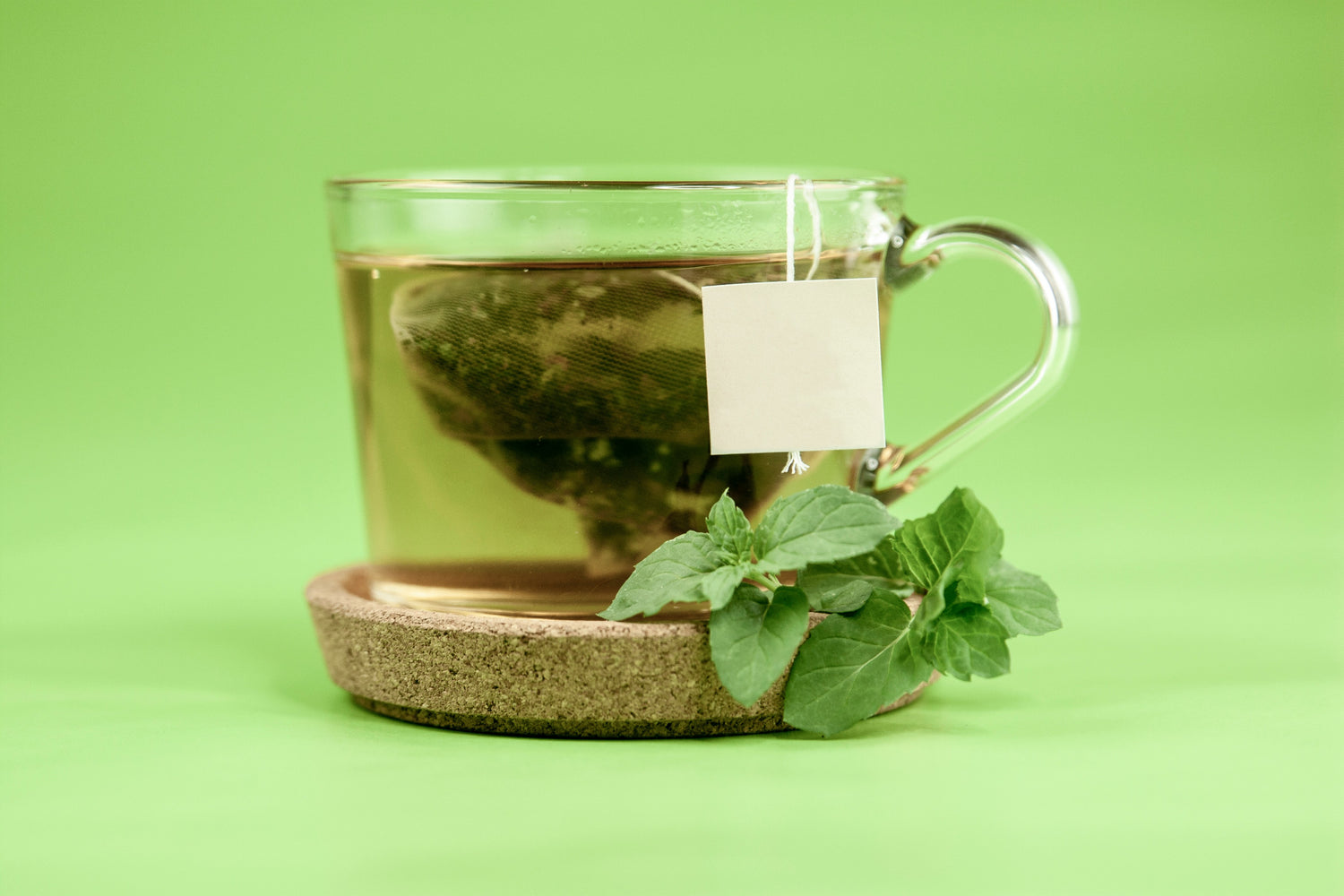
What Is Caffeine Intolerance?
Caffeine intolerance is a condition where the body struggles to metabolise, or break down, caffeine effectively. It’s more than just not liking the taste of coffee; it’s about how your metabolism handles caffeine. As a result, even hours after you’ve had your caffeine fix, you might experience several caffeine intolerance symptoms, such as feeling jittery, anxious, or restless, because your body is still reacting to it.
Now, let's talk about caffeine sensitivity, which is a bit different. If you're sensitive to caffeine, your body tends to overreact to even small amounts. For instance, just sipping a little green tea could leave you feeling intensely anxious or make your heart race. With caffeine intolerance, though, you might not notice any side effects until much later.
Interestingly, about ten percent of the population are hyposensitive to caffeine. These individuals have a unique ability to process caffeine really efficiently, so they can down a huge cup of coffee and then simply drift off to sleep.
If you’re particularly sensitive to caffeine, you’ll likely experience its positive effects—like heightened alertness and improved concentration—much quicker. While the general recommendation is to keep caffeine intake to around 400 mg per day (roughly four cups of coffee), everyone’s tolerance can vary. If you tend to have strong reactions to caffeine at lower doses, you might be more sensitive. On the flip side, if you can drink up to 400 mg without feeling much of anything, you’re probably on the lower end of the sensitivity scale.
Lastly, it’s important to mention caffeine allergies. Though they are quite rare, they can be far more serious than either intolerance or sensitivity. A caffeine allergy can lead to severe reactions like trouble breathing, swelling, hives, or even life-threatening anaphylaxis. Unlike those mild discomforts that come with intolerance or sensitivity, a caffeine allergy is a serious health concern that requires immediate medical attention.

Symptoms of Caffeine Intolerance and Sensitivity
If you have a caffeine intolerance or sensitivity, you might notice some of these symptoms after consuming caffeine:
- Jitteriness or shaky hands: A common response to caffeine, as it stimulates the central nervous system, leading to increased muscle tension and nervous energy.
- Insomnia or difficulty sleeping: Caffeine can interfere with your ability to fall asleep and stay asleep, especially if consumed later in the day.
- Anxiety or nervousness: For some, caffeine can exacerbate feelings of anxiety due to its stimulant properties, making you feel more restless or on edge.
- Restlessness: The stimulating effects of caffeine can lead to an inability to relax or sit still.
- Heart palpitations or racing heartbeat: Caffeine can spike your heart rate and blood pressure, causing irregular heartbeats in sensitive individuals.
- Digestive issues: Many people with caffeine intolerance report symptoms like bloating, gas, or symptoms similar to irritable bowel syndrome (IBS) after consuming caffeine. Caffeine can even exacerbate symptoms associated with several digestive disorders, including IBS, Crohn’s disease, and ulcerative colitis, so it’s definitely worth paying attention to.
- Headaches: Caffeine can lead to tension headaches or withdrawal headaches in those who regularly consume it.
- Feeling unhappy or uneasy (dysphoria): Some may experience a general sense of unease or discomfort after consuming caffeine, due to its impact on mood-regulating neurotransmitters.
So, why do these symptoms occur? Well, when you consume caffeine, it stimulates the central nervous system, affecting various functions in your body. For those with caffeine intolerance, it means their body struggles to break down caffeine efficiently, leading to longer-lasting, more intense reactions. On the flip side, if you’re sensitive to caffeine, you could feel those effects even from just a little bit, resulting in faster and stronger responses.

Causes and Triggers of Caffeine Intolerance and Sensitivity
Getting to know why you might be sensitive or intolerant to caffeine can really help you manage your symptoms and feel better. Different things can play a role in this, including your genes and your daily habits. Let’s take a closer look at these different factors.
The CYP1A2 Gene
When you drink caffeine, it moves quickly through your stomach and small intestine and starts to enter your bloodstream in as little as 15 minutes. The peak effects usually kick in about 30 to 60 minutes after you’ve had your drink, but how long these effects last really depends on your CYP1A2 gene.
The CYP1A2 gene is responsible for producing an enzyme, also called CYP1A2, that is responsible for breaking down caffeine and clearing it out from the body. In fact, more than 95% of caffeine is processed by this enzyme. However, not everyone carries the same variant of the CYP1A2 gene, and the specific version you have can make a big difference in how fast or slow you process caffeine. Based on the combination of CYP1A2 variants you inherit from your parents, you could be categorised as a fast, moderate, or slow metaboliser of caffeine.
So, what does this mean for you? If you happen to be a fast metaboliser, your body can break down caffeine quickly, allowing you to enjoy your morning coffee or afternoon energy boost without worrying about the negative side effects of caffeine. In fact, if you have two copies of the fast-metabolising gene, your body can process caffeine about four times faster than those who metabolise it more slowly.
On the other hand, if you’re a slow metaboliser, caffeine tends to linger in your system much longer. This extended presence can lead to some uncomfortable side effects, such as a racing heart, heightened anxiety, increased blood pressure, and even trouble falling or staying asleep. Understanding where you fall on this spectrum is key—it can really shape your approach to caffeine. Being aware of your metabolism type can help you make smarter decisions about your caffeine intake, and ultimately lead to a more pleasant experience with your favourite drinks!
If you find that caffeine hits you harder than it seems to hit your friends, it might be a sign that you’re a slow metaboliser. To really get to the bottom of how your body handles caffeine, you might like to consider getting a DNA test that analyses your CYP1A2 gene. This test can provide valuable insight into your caffeine metabolism, empowering you to make more informed choices about what you drink, and improving your overall experience with your favourite caffeinated beverages!
|
CYP1A2 Metabolism Type |
Description |
Effects |
|
Fast Metaboliser |
Your body breaks down caffeine quickly, allowing for faster processing. |
Enjoy coffee without significant side effects; your intake can be higher. |
|
Moderate Metaboliser |
Your caffeine processing speed falls in between fast and slow. |
Monitor your intake to avoid moderate side effects. |
|
Slow Metaboliser |
Caffeine stays longer in your system, leading to prolonged effects. |
Experience side effects such as increased anxiety and insomnia; lower your intake. |
TL;DR
The CYP1A2 gene is essential in determining how your body metabolises caffeine. It produces an enzyme that breaks down caffeine, and your genetic variant influences whether you are a fast, moderate, or slow metaboliser. If you're a fast metaboliser, your body clears caffeine quickly, resulting in a more enjoyable coffee experience. In contrast, slow metabolisers may face negative side effects, such as anxiety and insomnia, due to caffeine lingering in their system longer.
The ADORA2A Gene
The ADORA2A gene influences how the adenosine receptors in your brain work, which help manage how alert or sleepy you feel. When you enjoy a nice cup of coffee or tea, caffeine interacts with these adenosine receptors, giving you that revitalising boost and helping you shake off the drowsiness.
Now, here’s where it gets really fascinating! Some individuals have a variant of the ADORA2A gene that results in an increased number of adenosine receptors in their brains. This heightened sensitivity to caffeine means they can experience a more pronounced energising effect after just a little bit of coffee. However, with that stronger boost often comes a downside—they’re also more prone to feelings of jitters or anxiety.
Knowing which variant of the ADORA2A gene you have can help you figure out how much caffeine is right for you. If you're more sensitive, you might want to stick to a single espresso rather than a triple shot. This way, you can enjoy your coffee without feeling overwhelmed!
TL;DR
The ADORA2A gene affects how your brain's adenosine receptors handle your wakefulness and sleepiness. When you drink caffeine, it connects with these receptors and gives you a nice boost of energy. Interestingly, some individuals have a variant of this gene that increases the number of adenosine receptors in their brains. This means they can experience the energising effects of caffeine even more intensely. However, there’s a trade-off—these individuals might also be more susceptible to jitters or feelings of anxiety.
Age and Sex Hormone Activity
As you age, you may begin to notice changes in how your body processes caffeine. One major factor behind this shift is the natural slowing of your metabolism, which tends to happen as we grow older. Our metabolism is responsible for breaking down and processing the foods and drinks we consume. So when it slows down, caffeine can linger in your system for longer, impacting how you feel after that afternoon coffee.
Research shows that coffee drinkers aged 65 to 70 take about 33% longer to process caffeine than younger individuals. This means that if an older adult sticks to their usual coffee intake, they may find the effects hitting them much harder than before. Common side effects can include anxiety, irritability, jitteriness, and difficulty sleeping. Essentially, that familiar cup of coffee can lead to more intense reactions, which can be quite uncomfortable.

Fluctuations in sex hormones also play a significant role in caffeine sensitivity, especially in women. During major hormonal transitions, such as menopause, women may experience changes in how they respond to caffeine.
Similarly, during pregnancy, hormonal changes can lower caffeine tolerance, meaning that even small amounts might cause side effects like nausea, increased heart rate, or heightened anxiety. During the second trimester, it may take almost twice as long to eliminate caffeine compared to when you're not pregnant. And by the third trimester, this processing time can extend to nearly three times longer. Therefore, it's important to be mindful of your caffeine intake during pregnancy to ensure both your health and that of your baby.
Additionally, women on birth control pills face another layer of complexity regarding caffeine metabolism. Research indicates that caffeine competes with oestrogen for the same liver enzymes. When synthetic hormones from oral contraceptives are present in the body, caffeine metabolism may slow to about one-third of its normal rate. So, if a woman who takes birth control drinks her usual coffee, she might find that it affects her more than it used to, because it takes longer for her body to get rid of the caffeine.
TL;DR
As we age, our metabolism slows down, making caffeine hang around in our system longer and intensifying its effects, which can lead to issues like anxiety and sleep disruption. Research indicates that people aged 65-70 take about 33% longer to process caffeine compared to younger people. Hormonal fluctuations also play a significant role; women may find they’re more sensitive to caffeine during menopause, pregnancy, or while on birth control, resulting in caffeine staying in their system much longer and causing stronger reactions.
Liver Disease
The liver plays an important role in filtering and processing caffeine. However, if your liver isn’t functioning well because of issues like hepatitis, cirrhosis, or fatty liver disease, it struggles to break down caffeine effectively. As a result, caffeine can stay in your body for longer, making you feel more jittery, anxious, or unable to sleep than usual.
People with liver problems often react more strongly to caffeine, even if they consume the same amount. This is why it's important to be careful about how much caffeine you have. Keeping track of your caffeine consumption can help reduce stress on your liver and lessen unwanted side effects.
Smoking
Smoking impacts various aspects of health, and one interesting effect is its influence on how your body processes caffeine. When you smoke, your body processes caffeine much faster, which means you might need to drink more coffee or energy drinks to feel the same boost that non-smokers get with less caffeine. This happens because certain chemicals in tobacco smoke speed up the enzymes in your liver that break down caffeine.
But here's where it gets interesting: if you quit smoking, your body starts to change. Without the effects of tobacco, those fast-acting enzymes slow down, and you may find yourself more sensitive to caffeine. This means that even if you drink the same amount of coffee as before, it could make you feel jittery, cause your heart to race, or keep you awake at night—symptoms of increased caffeine sensitivity.
If you've recently quit smoking and are starting to notice these effects, it's a good idea to rethink how much caffeine you're consuming. Consider gradually cutting back on your caffeine intake and keeping track of how you feel. You might try switching to drinks with lower caffeine levels, like herbal teas or decaf coffee, to help your body adjust comfortably to your new lifestyle.
Dietary Considerations
Your food choices play a big role in how your body handles caffeine. Although it might not seem obvious, what you eat affects your overall metabolic health, which in turn influences how caffeine is processed. If your diet is high in unhealthy fats and sugars, it can slow down your metabolism. This sluggishness can make you more sensitive to caffeine, leading to uncomfortable symptoms like jitteriness and stomach issues.
On the other hand, eating a diet rich in fibre and antioxidants can help your metabolism work better. Foods like fruits, vegetables, and whole grains are high in fibre, which supports good digestion and nutrient absorption. Antioxidants found in berries, nuts, and leafy greens reduce stress in the body, which may help your body process caffeine more effectively. This can result in fewer and milder symptoms of caffeine sensitivity, allowing for a more balanced daily life.
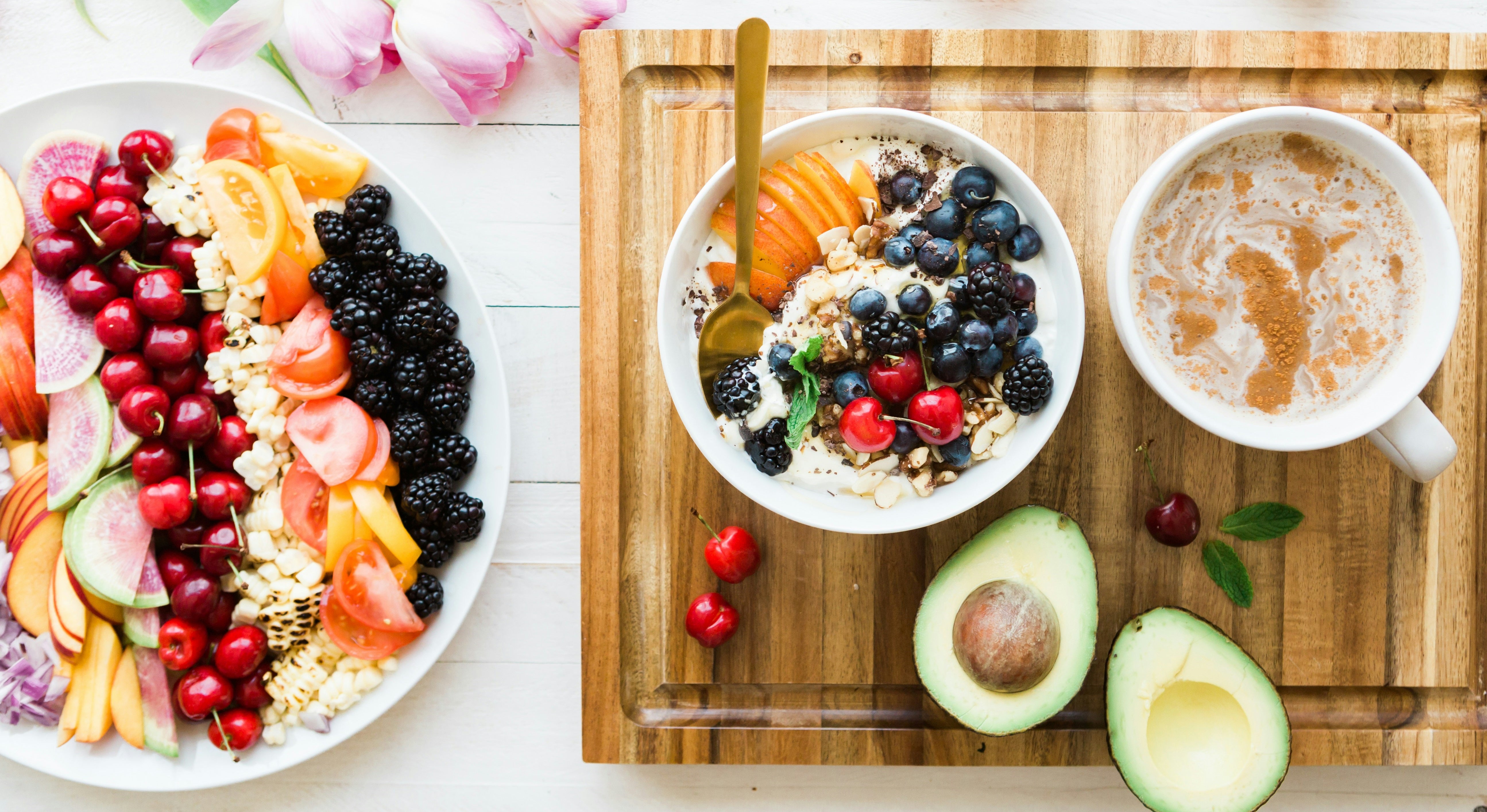
High Levels of Stress or Anxiety
Stress can make you react to caffeine more strongly than usual. When you’re stressed, your body goes into “fight or flight” mode, releasing hormones like adrenaline that boost your alertness and heart rate. This can lead to stronger symptoms like jitters, a racing heart, or stomach issues when you drink coffee or energy drinks, especially if you already have caffeine sensitivity.
If you're feeling stressed out, it can also make it harder for your body to process caffeine. Even a small amount might feel overwhelming, making those uncomfortable symptoms worse.
Medication
Certain medications and supplements might make the effects of caffeine stronger, which means your usual coffee or espresso could hit you harder than expected.
For example, Theophylline, a medication used for breathing issues, can enhance the effects of caffeine because it has a similar structure. If you take theophylline and consume caffeine, you may notice an increased heart rate and more jitters than if you had caffeine on its own.
Similarly, the herbal supplement Echinacea can also affect how your body processes caffeine. It may slow down the breakdown of caffeine in your liver. As a result, caffeine stays in your system longer, which can make its effects stronger and increase symptoms like insomnia and nervousness.
If you're finding caffeine affects you more dramatically than before, consider checking in with your doctor or pharmacist. They can help you identify whether your current medications might be influencing your caffeine tolerance and offer guidance on how to manage it effectively.
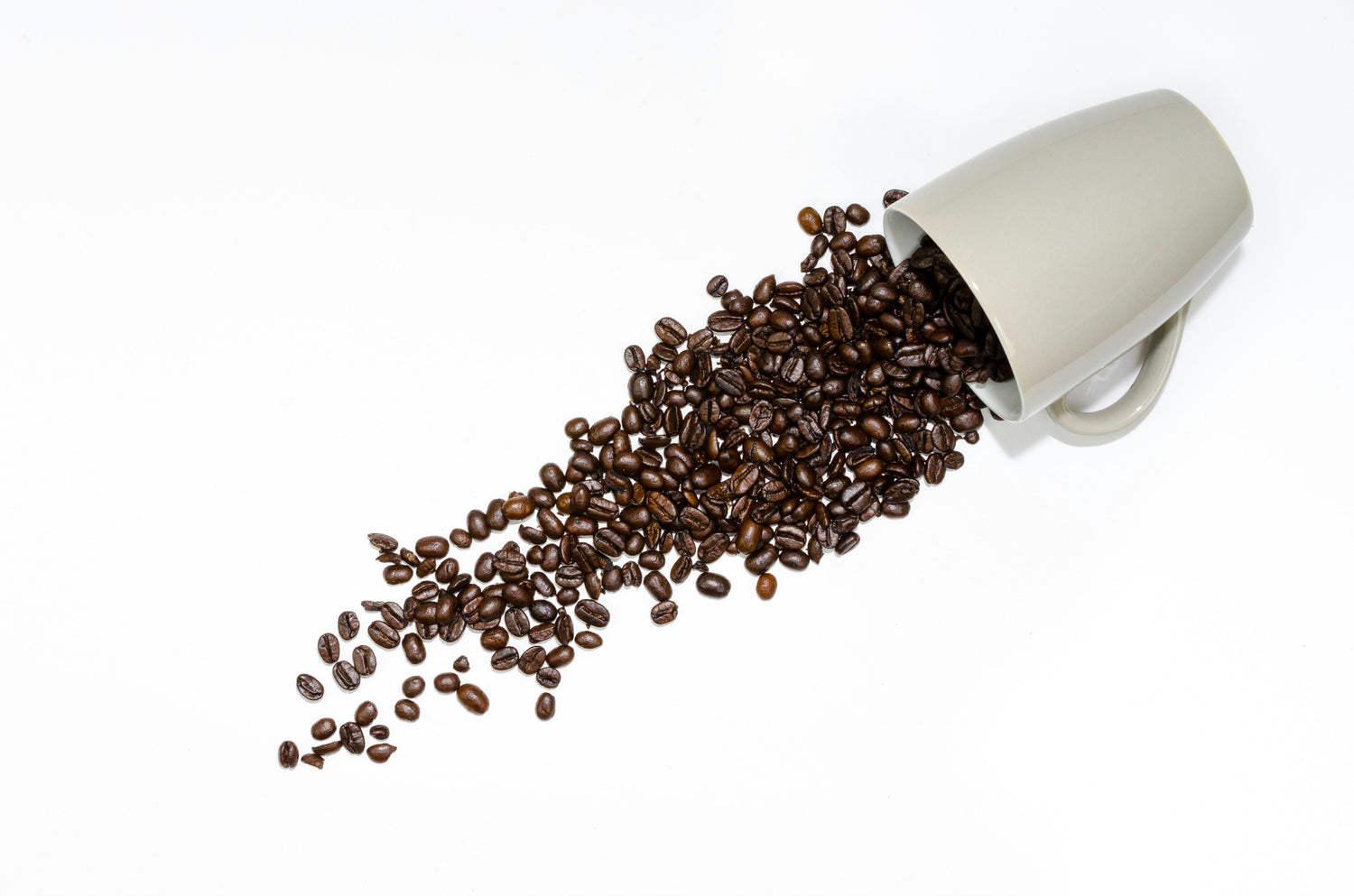
Diagnosis and Testing for Caffeine Intolerance
Understanding how caffeine affects your body is the first step toward managing any discomfort that may arise from its consumption. Thankfully, there are some simple steps you can take to find out if caffeine is the culprit behind any discomfort you’re experiencing.
Elimination Diet
If you're trying to figure out if you have any food intolerances, like being sensitive to caffeine, an elimination diet can be particularly helpful. Here’s how it works: for about two to three weeks, you stop eating or drinking anything with caffeine. This means giving up coffee, tea, energy drinks, and even chocolate! The idea behind this is to give your body a chance to reset without any caffeine interference.
After that initial break, you can slowly start to bring caffeine back into your diet, but do it one little step at a time. Pay close attention to how your body feels when you reintroduce it. Are you getting headaches? Do you feel anxious? This is your chance to learn what works for you and how caffeine affects you personally.
When following this diet, it’s important to do it with the help of a healthcare professional. They can give you personalised advice to make sure it’s safe and effective. They can also help you keep track of any withdrawal symptoms, like headaches or fatigue, and support you during this process. Additionally, they can help determine if your symptoms are truly from cutting out caffeine or if there’s something else causing them. Having this expert support can really help you understand your health and find what works best for you. Your doctor might also suggest genetic testing to see if you have any genes that affect how your body processes caffeine.
Caffeine Intolerance Test
Wondering if you might have a caffeine intolerance? It can be pretty tricky to figure out, especially since the issue might not just be the caffeine itself. Sometimes, it could be something in the coffee beans or even the milk you add to your drink.
To get to the bottom of what might be bothering you, consider taking a food intolerance test, like the one we offer here at Supply Life. It’s a straightforward blood test that can help you determine if you have an intolerance to caffeine or any other foods.
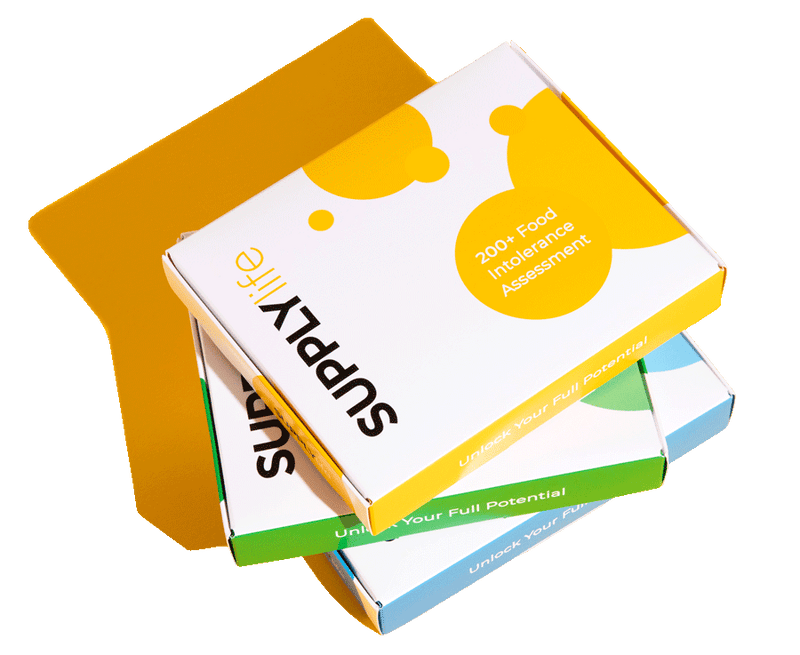
Unlock your full potential today
Get your easy to use food intolerance test today
The test examines specific proteins in your blood, known as IgG. By analysing these proteins, it can pinpoint various food intolerances, giving you valuable insights into what might be causing your discomfort. This way, you'll have a clearer idea of what you can handle when it comes to coffee and your other favourite foods!
Expert Insights
 "With over 1,000 chemical compounds in coffee, pinpointing the exact cause of your discomfort can be a daunting task. Besides caffeine, there are numerous other compounds that might be triggering your intolerance. Fortunately, a food intolerance test can cut through this complexity. By identifying specific proteins related to your intolerances, it gives clarity on what to pay attention to, allowing you to enjoy coffee without the guesswork."
"With over 1,000 chemical compounds in coffee, pinpointing the exact cause of your discomfort can be a daunting task. Besides caffeine, there are numerous other compounds that might be triggering your intolerance. Fortunately, a food intolerance test can cut through this complexity. By identifying specific proteins related to your intolerances, it gives clarity on what to pay attention to, allowing you to enjoy coffee without the guesswork."
— Riya Lakhani-Kanji BSc, MSc
Managing Caffeine Intolerance and Sensitivity
Navigating life with caffeine intolerance or sensitivity might feel daunting, but with the right strategies, you can easily manage your energy levels and maintain a balanced lifestyle. Here are some practical tips to help you reduce caffeine intake and still feel energised.
Identify Hidden Caffeine Sources
Many people aren’t aware that caffeine can lurk in unexpected places, extending well beyond the usual suspects of coffee and tea. For instance, chocolate is a surprising source of caffeine as well! Dark chocolate typically contains higher levels of caffeine than its milk chocolate counterpart, so if you enjoy indulging in chocolate treats, it’s wise to consider this in your overall caffeine consumption.

Additionally, soft drinks, energy drinks, and certain energy bars can pack a significant caffeine punch—sometimes even more than you might anticipate! It’s important to read the labels not just on beverages but also on over-the-counter medications. Many pain relievers and some weight-loss supplements incorporate caffeine as an ingredient.
To stay informed about your caffeine intake, make it a habit to check the labels of all products you consume. This proactive approach will empower you to manage your caffeine consumption more effectively and ensure you remain mindful of its presence in your diet. By identifying these hidden sources, you can enjoy your favourite treats without exceeding your desired caffeine limits.
Opt for Caffeine-Free Alternatives
As you reduce your caffeine intake, consider replacing caffeinated drinks with alternatives that provide satisfying flavours without the stimulating effects. Options like rooibos tea, herbal infusions, and chicory root coffee can serve as excellent substitutes.
- Rooibos tea, renowned for its naturally sweet and nutty flavour, is caffeine-free and rich in antioxidants, making it a nutritious choice.
- Herbal infusions come in a vast array of flavours—from calming chamomile to energising peppermint—allowing you to find the perfect blend for your mood or occasion.
- Chicory root coffee offers a rich, roasted flavour similar to traditional coffee, but without any caffeine, making it a fantastic option for those seeking the experience of coffee without the jitters.
By incorporating these caffeine-free alternatives into your routine, you can enjoy your favourite beverages guilt-free while still savouring rich tastes. This not only helps you wean off caffeine comfortably but also opens up a world of new flavours to explore and enjoy.
Explore Adaptogens
For those seeking energy or mental clarity without caffeine, adaptogens offer a natural alternative. These herbs and roots have been used for centuries in traditional medicine to help the body adapt to stress and maintain balance. Unlike caffeine, which stimulates the central nervous system, adaptogens work by modulating the body’s stress response, making them suitable for individuals who are sensitive to caffeine.

- Some popular adaptogens include ashwagandha, which helps to lower stress and anxiety while keeping you clear-headed.
- Rhodiola rosea, which helps fight fatigue and boosts your brainpower; and ginseng, which is great for increasing energy and supporting your immune system.
- Other good options are holy basil, which helps with emotional balance, and schisandra berries, which can improve your stamina.
You can easily add these adaptogens to your daily routine! For example, you can drink herbal teas made with ashwagandha or holy basil for a gentle pick-me-up, or you can mix them into smoothies or protein shakes.
Just remember to talk to a healthcare provider before starting any new supplements, especially if you’re taking any medications or have health issues, to make sure they’re right for you.
Consider Stress Management Techniques
It's important to recognise that caffeine can often exacerbate feelings of stress and anxiety. To counteract these effects, consider integrating relaxation practices into your daily routine. Techniques such as meditation, yoga, or deep breathing exercises can significantly enhance your ability to manage stress. By consistently engaging in these calming activities, you can build resilience against the jittery sensations and heightened anxiety that caffeine may trigger. Not only do these practices promote mental clarity and emotional balance, but they also create a more peaceful mindset, making it easier to navigate daily challenges without relying on caffeine as a crutch.
Keep a Caffeine Diary
Have you ever thought about keeping a caffeine diary? It’s a simple way to figure out just how much caffeine you’re actually taking in. Researchers at Johns Hopkins University found that this approach was really effective for people looking to cut back on caffeine. In their study, along with some brief counselling, participants managed to go from an average of 600 milligrams a day all the way down to just 50 milligrams over six weeks. It’s definitely something to consider if you’re thinking about reducing your caffeine intake!
Caffeine Content in Common Foods and Beverages
|
Item |
Caffeine Content (mg per serving) |
|
Instant Coffee (1 cup, 250ml) |
60-85 mg |
|
Brewed Coffee (1 cup, 250ml) |
95-165 mg |
|
Espresso (1 shot, 30ml) |
63 mg |
|
Tea (Black, 1 cup, 250ml) |
40-70 mg |
|
Tea (Green, 1 cup, 250ml) |
20-45 mg |
|
Cola (1 can, 330ml) |
30 mg |
|
Chocolate Bar 45–59% Cocoa Solids (28g) |
12 mg |
|
Chocolate Bar 70–85% cocoa solids (28g) |
22.7 mg |
|
Energy Drink (250ml) |
80 mg |
|
Decaffeinated Coffee (1 cup, 250ml) |
2-5 mg |
|
Yerba Mate (1 cup, 150ml) |
80 mg |
|
Over-the-Counter Pain Relievers (per tablet) |
15-65 mg |
|
Weight Loss Supplements (per serving) |
Up to 200 mg |
It's good to keep in mind that the caffeine content in your coffee can vary quite a bit. For starters, the type of coffee bean you use makes a difference—Arabica beans typically pack less caffeine than Robusta beans. Then there's the brewing method; whether you’re making drip coffee, pulling an espresso shot, or using a French press can all lead to different caffeine levels in your cup. Don’t forget about the roast level, too—darker roasts usually have a little less caffeine than light ones. And of course, different brands and products can have their own unique caffeine counts, so that can really impact how much caffeine you're actually getting.
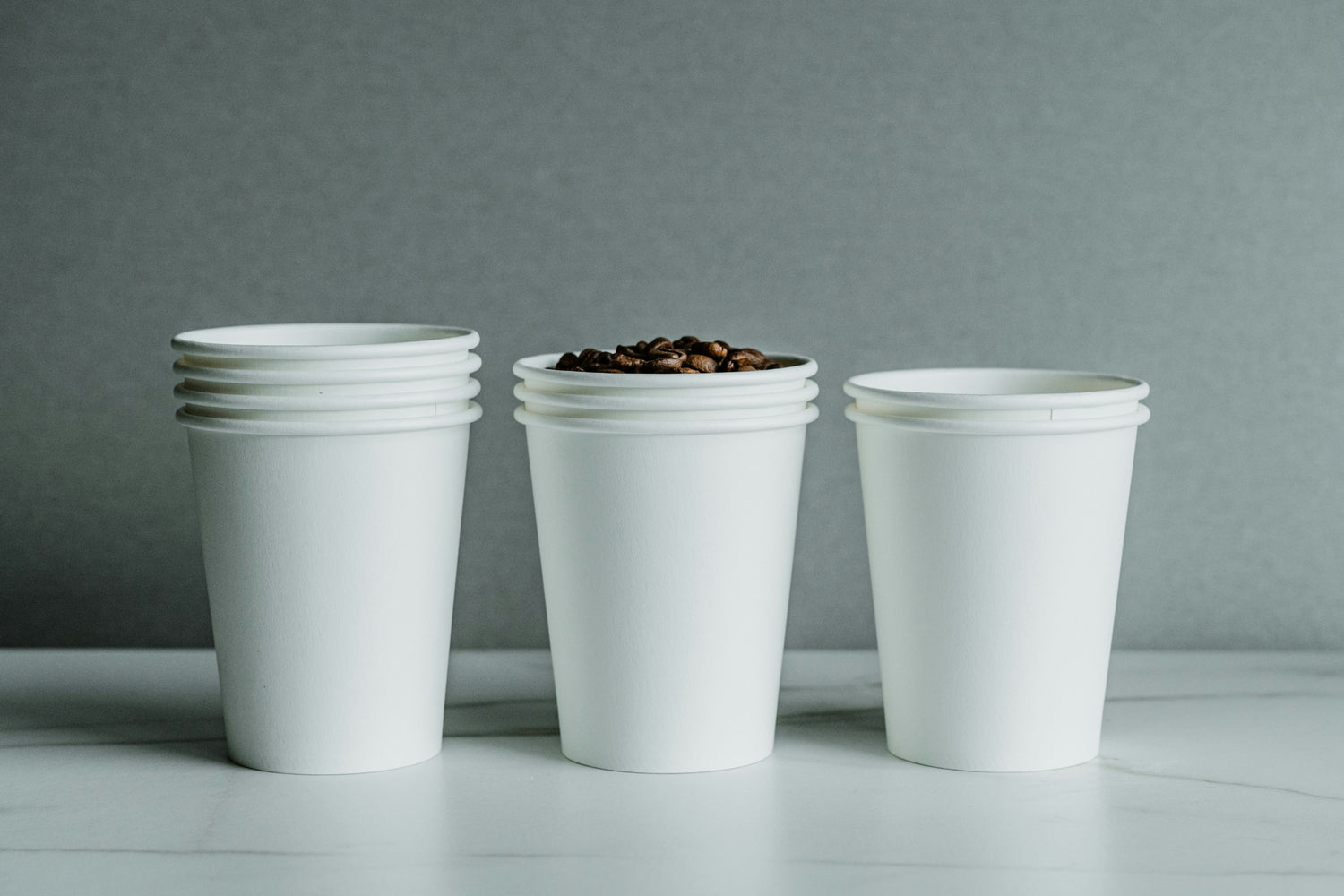
Impact of Caffeine on Mental Health
Caffeine is well-known for making you feel more awake and alert, but it can also cause some issues like increased anxiety and mood swings, especially for those who are sensitive to it. This happens because caffeine boosts adrenaline, the hormone that gets your body ready for action. So even a small amount can cause a significant reaction in some people.
If you enjoy caffeinated drinks, you might find yourself feeling nervous, restless, or even on the verge of a panic attack. This is because caffeine stimulates your nervous system, which can make anxiety disorders feel even tougher to handle. Just how intense these effects can be really varies from person to person, depending on things like your metabolism and genetics.
For instance, a study looked into how caffeine affects people with panic disorders. They examined 237 participants and discovered that about half of them—51%—experienced a panic attack after consuming caffeine. In contrast, none of the people who had a placebo drink (which didn’t contain any caffeine) reported having panic attacks. This suggests that for some individuals, especially those who are already prone to anxiety, caffeine might make their symptoms worse, making it a less appealing choice.
On a more encouraging note, research suggests that moderate caffeine consumption—around two to six cups of coffee a day—can actually be beneficial for those prone to depression. And if you’re taking antidepressants, caffeine might even make those medications work better. But it’s important to approach caffeine consumption cautiously. While moderate intake may provide mood-enhancing benefits, excessive consumption may lead to unwanted side effects such as increased anxiety, restlessness, and sleep disturbances, which can counteract any positive effects on mood.
Knowing how caffeine impacts your mental health is really important for making smart choices about how much you consume. If you notice that you feel more anxious or moody after having caffeine, it might be a good idea to cut back or switch to caffeine-free options. Paying attention to how your body reacts can help you maintain a more balanced mental state.
Caffeine Withdrawal and Dependence
Caffeine dependence can sneak up on you when your body gets used to regularly having caffeine from sources like coffee, tea, or energy drinks. If you decide to cut caffeine out of your routine suddenly, you might find yourself dealing with withdrawal symptoms as your body reacts to the absence.
What might surprise you is that you can start developing a dependence on caffeine after just three days of consistent consumption—even with a modest intake of around 100 mg a day, which is roughly the amount in a standard cup of coffee. So while that caffeine buzz can feel great, it’s worth keeping in mind that you might end up relying on it more than you realise.
Here are some common withdrawal symptoms you might experience:
- Headaches: You might feel pressure or pain in your head.
- Fatigue: You could feel really tired and low on energy.
- Loss of focus: You might find it hard to concentrate on tasks or schoolwork.
- Lack of motivation: You may feel unmotivated to do things you usually enjoy.
- Mood swings: Your emotions could change quickly, making you feel irritable or down.
- Nausea: You might feel sick to your stomach.
- Insomnia: It could be difficult to sleep at night.
- Dizziness: You may feel lightheaded or unsteady.
- Cardiac issues and hypertension: Your heart might race or feel uncomfortable, and your blood pressure could go up.
- Anxiety: You might feel overly anxious or worried.
- Back and joint pain: You could experience aches in your back or joints.
If you decide to cut back on caffeine, it’s good to know what to expect. You might start feeling withdrawal symptoms about 12 to 24 hours after you stop, and they can hang around for anywhere from two to nine days. Some people find these symptoms to be just a minor annoyance, while for others, they can be pretty tough to handle. Being prepared can make the process a lot smoother!
Expert Insights
 "The symptoms of caffeine intolerance can be confusing, often mimicking other conditions. You might experience discomfort after suddenly increasing your caffeine intake, or even after cutting it out abruptly. If you suspect you might be dealing with a caffeine intolerance, consulting a specialist can be really helpful. Food intolerance testing is another great option that could reveal how your body reacts to various foods, including your caffeine favourites. Taking proactive steps can make all the difference when dealing with a suspected intolerance!"
"The symptoms of caffeine intolerance can be confusing, often mimicking other conditions. You might experience discomfort after suddenly increasing your caffeine intake, or even after cutting it out abruptly. If you suspect you might be dealing with a caffeine intolerance, consulting a specialist can be really helpful. Food intolerance testing is another great option that could reveal how your body reacts to various foods, including your caffeine favourites. Taking proactive steps can make all the difference when dealing with a suspected intolerance!"
— Riya Lakhani-Kanji BSc, MSc
Conclusion
Understanding caffeine intolerance and sensitivity can really empower you to manage its effects in your daily life. If you find yourself feeling jittery, having trouble sleeping, or facing digestive issues after consuming caffeine, it’s definitely worth digging into those signs. Being aware of how caffeine impacts you puts you in control of your intake.
It’s also really important to know the difference between caffeine intolerance, sensitivity, and an allergy. Each of these can lead to different challenges and require different ways to handle them. For instance, if you’re intolerant, simply cutting back on caffeine might be all you need to feel better. But if it’s an allergy, that can be a more serious situation that requires extra caution. Knowing where you stand can make a big difference in how you handle things!
Don’t forget to check for hidden sources of caffeine too! Things like chocolate, certain teas, and even some medications can sneak up on you. Opting for caffeine-free alternatives can make it easier to reduce those symptoms.
And if you're experiencing persistent symptoms, have a chat with your GP or a registered nutritionist. They can give you personalised advice that fits your dietary needs and help you manage your symptoms effectively.
As you think about your next steps, have you considered getting a food intolerance test from Supply Life? It could help identify other sensitivities you might not even realise you have, allowing you to customise your diet even more. With the right information, you'll feel better equipped to handle your symptoms and make choices that truly work for you!

Unlock your full potential today
Get your easy to use food intolerance test today
FAQs
How much caffeine is too much?
For most adults, it’s generally safe to consume up to 400 milligrams of caffeine per day, which is about four cups of brewed coffee (around 240 ml each). However, if you start feeling jittery, anxious, or have trouble sleeping, you're probably overdoing it. Everyone reacts differently to caffeine, so listen to your body! If you're still unsure, it's a good idea to chat with a healthcare professional.
Why am I suddenly sensitive to caffeine?
There could be a few reasons why you’re noticing increased sensitivity to caffeine. It might be due to changes in your lifestyle, like less sleep or increased stress, which can make you more reactive to caffeine. Your body’s tolerance can also fluctuate over time—maybe you’ve cut back on caffeine recently or started a new medication that interacts with it. Hormonal changes can also play a part. If you're feeling off or really uncomfortable, it's a good idea to talk to a healthcare professional who can help you figure it out!
Can you be allergic to coffee?
Yes, you can be allergic to coffee, although it’s quite rare. Some people might experience symptoms like hives, itching, or even trouble breathing after consuming coffee. This can happen due to an allergy to coffee beans or additives like milk or sweeteners that you might have with your coffee. If you notice any strange reactions after drinking coffee, it’s a good idea to avoid it and get it checked out.
How long does it take to detox from caffeine?
If you quit caffeine all at once after regular use, you'll probably start feeling withdrawal effects about 12 to 24 hours after stopping. The peak of withdrawal symptoms usually hits between 24 and 51 hours after you stop. So, the first couple of days can be pretty rough!
Are there any long-term effects of caffeine intolerance?
Generally, caffeine intolerance itself doesn’t lead to serious long-term health issues. However, if you keep consuming caffeine despite feeling intolerant, it can lead to ongoing discomfort, like anxiety, sleep troubles, or digestive issues.
Can caffeine sensitivity develop later in life?
Yes, it’s definitely possible to become more sensitive to caffeine as you get older. As your body ages, its metabolism changes, which can influence how you process caffeine. Factors like hormonal shifts, variations in liver function, and changes in your diet all play a role in this increased sensitivity. So, if you find that caffeine affects you differently as the years go by, you’re not alone!
Are there medical conditions that mimic caffeine intolerance symptoms?
Yes, definitely! Conditions like anxiety disorders, IBS (Irritable Bowel Syndrome), and certain heart conditions can show symptoms like jitters, nervousness, or stomach discomfort, which can feel a lot like caffeine intolerance. It's a good idea to pay attention to your symptoms and when they occur. If they happen after consuming caffeine, it might be intolerance. But if they occur even without caffeine, it could be linked to another condition.

Written by: Riya Lakhani-Kanji, MSc, ANutr
Riya is a certified nutritionist with a passion for plant-based nutrition. Holding both a bachelor's and a master’s degree in nutrition, she skillfully blends her expertise with her writing to create insightful and engaging content focused on health and wellness.
Sources
A brief manualised treatment for problematic caffeine use: A randomised control trial. Journal of Consulting and Clinical Psychology. (2016). https://psycnet.apa.org/doiLanding?doi=10.1037%2Fccp0000064
A comparison of the effects of caffeine following abstinence and normal caffeine use. Psychopharmacology (Berl). (2009). https://pmc.ncbi.nlm.nih.gov/articles/PMC2941158/
A genetic variation in the adenosine A2A receptor gene (ADORA2A) contributes to individual sensitivity to caffeine effects on sleep. Clinical Pharmacology & Therapeutics. (2007). https://ascpt.onlinelibrary.wiley.com/doi/abs/10.1038/sj.clpt.6100102
Anaphylaxis due to caffeine. Asia Pac Allergy. (2015). https://pmc.ncbi.nlm.nih.gov/articles/PMC4313757/
Caffeine during pregnancy. (n.d.). https://www.babycenter.com/pregnancy/diet-and-fitness/caffeine-during-pregnancy_3955
Caffeine for the sustainment of mental task performance: formulations for military operations. Institute of Medicine (US) Committee on Military Nutrition Research. (2001). https://www.ncbi.nlm.nih.gov/books/NBK223808/
Caffeine: how much is too much? (2022). https://www.mayoclinic.org/healthy-lifestyle/nutrition-and-healthy-eating/in-depth/caffeine/art-20045678
Caffeine, mental health, and psychiatric disorders. Journal of Alzheimer's Disease. (2010). https://content.iospress.com/articles/journal-of-alzheimers-disease/jad01378
Caffeine pharmacology. (2023). https://www.news-medical.net/health/Caffeine-Pharmacology.aspx
Caffeine sensitivity grows as people age. (2022). https://www.uclahealth.org/news/article/caffeine-sensitivity-grows-as-people-age#:~:text=But%20as%20people%20age%2C%20the,at%20which%20caffeine%20is%20metabolized.
Caffeine withdrawal. (2023). https://www.ncbi.nlm.nih.gov/books/NBK430790/
Coffee consumption frequency in the United Kingdom in 2024. (2024). https://www.statista.com/statistics/1403550/coffee-consumption-frequency-in-the-uk
Coffee doesn’t give you the jitters, alcohol makes you blush: thank your genes. (2024). https://www.pfizer.com/news/articles/coffee-doesn%E2%80%99t-give-you-jitters-alcohol-makes-you-blush-thank-your-genes#:~:text=Genetic%20differences%20also%20influence%20how,these%20substances%20in%20the%20liver.
CYP1A2 Genetic variation, coffee intake, and kidney dysfunction. JAMA Netw Open. (2023)
https://jamanetwork.com/journals/jamanetworkopen/fullarticle/2800839
Echinacea - uses, side effects, and more. (n.d.). https://www.webmd.com/vitamins/ai/ingredientmono-981/echinacea
Effects of caffeine on anxiety and panic attacks in patients with panic disorder: A systematic review and meta-analysis. General Hospital Psychiatry. (2022). https://www.sciencedirect.com/science/article/pii/S0163834321001614?via%3Dihub
How Does Caffeine Affect Your Body? (2022). https://psychcentral.com/blog/caffeines-effects-on-your-thinking#skeletal-and-muscular
LiverTox: Clinical and research information on drug-induced liver injury. National Institute of Diabetes and Digestive and Kidney Diseases. (2012). https://www.ncbi.nlm.nih.gov/books/NBK559835/
“No thanks, coffee keeps me awake”: individual caffeine sensitivity depends on ADORA2A genotype. Sleep. (2012). https://academic.oup.com/sleep/article-abstract/35/7/899/2558856?redirectedFrom=fulltext
Sequence variants at CYP1A1–CYP1A2 and AHR associate with coffee consumption. Human Molecular Genetics. (2011). https://academic.oup.com/hmg/article-abstract/20/10/2071/680367?redirectedFrom=fulltext
Scientific opinion on the safety of caffeine. (2015). https://www.efsa.europa.eu/en/efsajournal/pub/4102
The effects of caffeine, nicotine, ethanol, and tetrahydrocannabinol on exercise performance. Nutrition & Metabolism. (2013). https://nutritionandmetabolism.biomedcentral.com/articles/10.1186/1743-7075-10-71#citeas
Use of oral contraceptives blunts the calciuretic effect of caffeine in young adult women. Journal of Nutrition. (2003). https://pubmed.ncbi.nlm.nih.gov/12566473/
Why some people don’t feel the buzz of caffeine. (2023). https://www.washingtonpost.com/wellness/2023/10/10/caffeine-sensitivity-coffee-heart-genes/

